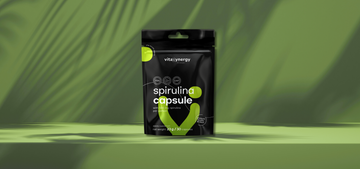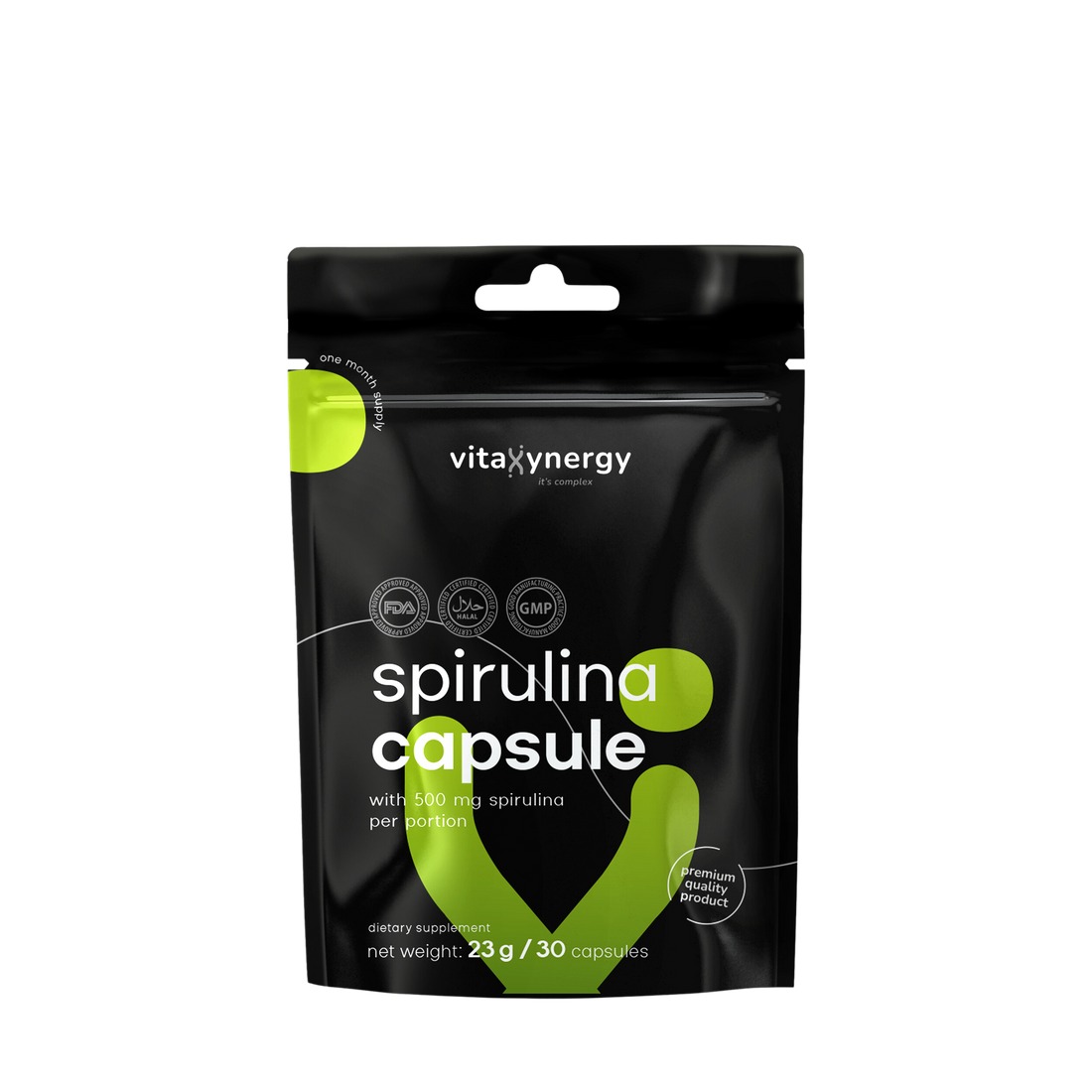The Role of Spirulina: Health Benefits, Nutritional Value & Precautions
Spirulina, a nutrient-dense microalgae, stands out as a valuable dietary supplement. Thanks to its rich content of complete proteins, vitamins, minerals, and antioxidants, spirulina supports overall health by contributing to energy metabolism, immune function, and hormonal balance. However, its use requires caution, especially in the presence of pre-existing conditions or during sensitive periods like pregnancy.
1. Nutritional Composition of Spirulina
Spirulina provides all essential amino acids, making it an excellent protein source for vegetarians and vegans. Per 100g, spirulina contains a protein level comparable to that of an egg or a small yogurt. Key nutrients include:
- B-complex vitamins (B1, B2, B3), crucial for energy metabolism and neural health
- Highly bioavailable iron, helpful in preventing and managing anemia
- Magnesium, calcium, potassium, and zinc, which support muscle function, nerve signaling, and electrolyte balance
2. Key Health Benefits of Spirulina
- Antioxidant Protection: Spirulina contains powerful antioxidants that neutralize free radicals, reducing oxidative stress and lowering the risk of chronic diseases.
- Gut Health Support: It promotes the growth of beneficial bacteria such as Lactobacillus, helping maintain a balanced microbiome.
- Weight Management: Spirulina supports satiety due to the presence of phenylalanine, an amino acid that triggers appetite-suppressing signals in the brain.
3. Benefits for Hormonal and Immune Systems
Adequate protein intake is essential for hormonal balance and immune defense. Spirulina’s high protein bioavailability makes it a helpful supplement to prevent hormone-related imbalances such as estrogen or progesterone deficiencies. Low-protein diets have been linked to thyroid dysfunction and impaired immunity.
4. Cautions and Potential Risks
While generally beneficial, spirulina may pose risks and should be used according to individual needs:
- Allergies: Allergic reactions are rare but possible.
- Autoimmune Conditions: Spirulina may overstimulate the immune system, potentially worsening symptoms.
- Thyroid Disorders: Its iodine content can have varying effects depending on whether the person has hypo- or hyperthyroidism—medical supervision is advised.
- Pregnancy and Breastfeeding: Safety must be evaluated by a healthcare provider, and supplement quality is critical.
Why Choose VitaXynergy Spirulina Supplements?
VitaXynergy Spirulina offers several standout advantages:
- Formulated with pure spirulina powder (Arthrospira platensis) – a natural, nutrient-rich source
- Each capsule contains 500 mg of Spirulina, delivering the optimal daily dose
- Spirulina is a promising nutritional choice, but to achieve the best results, its use should be personalized and monitored. Consulting a healthcare professional is essential when incorporating spirulina into your routine—especially if you have underlying health conditions.
Dr. Elena Munteanu
References:
https://www.healthline.com/nutrition/10-proven-benefits-of-spirulina
Spirulina Microalgae and Brain Health: A Scoping Review of Experimental and Clinical Evidence — PubMed
https://www.mihaelabrailescu.ro/surse-de-proteine-si-colagen-pentru-echilibru-hormonal/
https://aronia-charlottenburg.ro/spirulina-ce-beneficii-si-proprietati-are-si-care-este-doza-zilnica-recomandata








